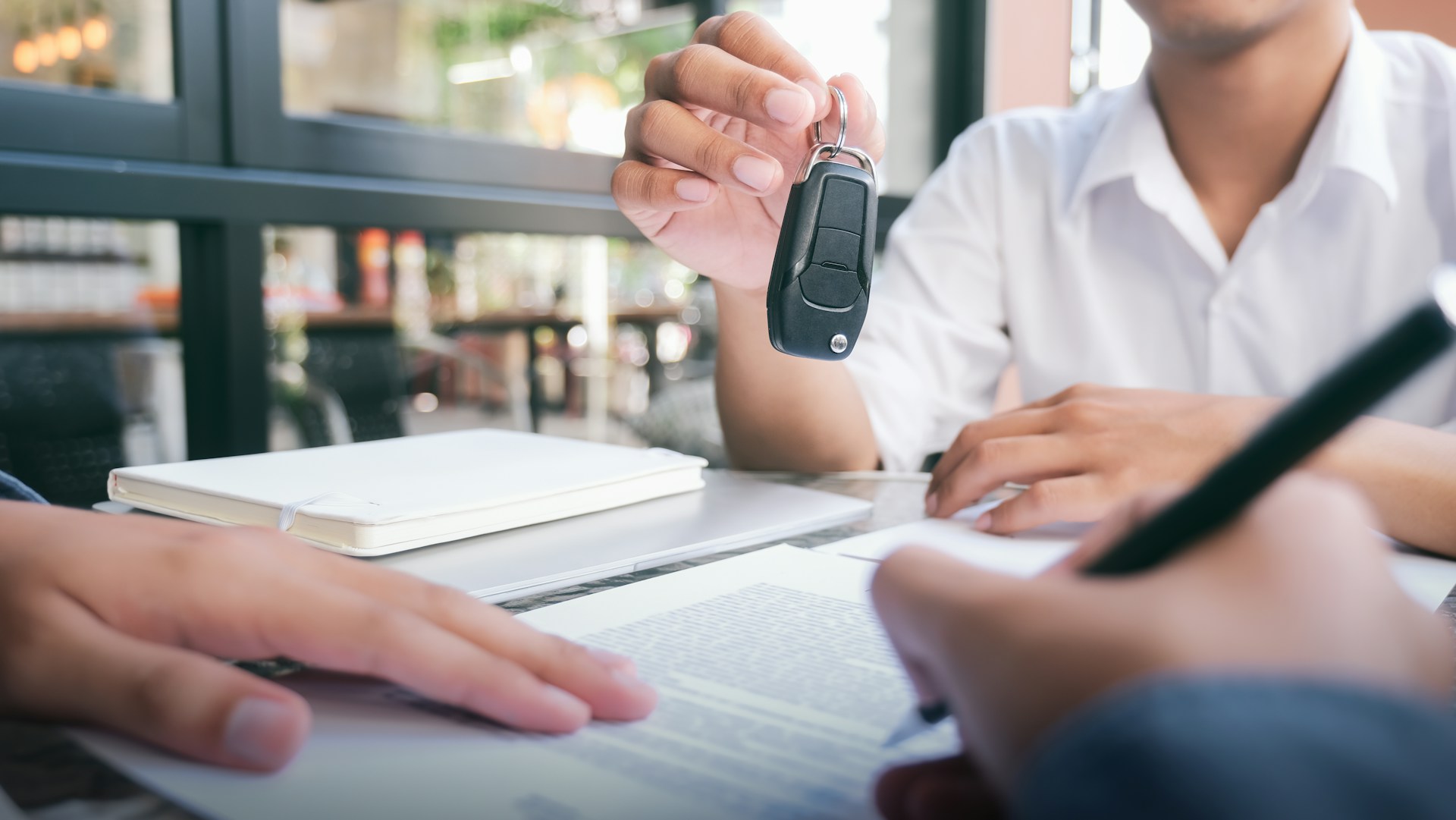
Cashier’s checks are a decent way for two parties to exchange money during a car transaction. They are a relatively safe alternative to physical cash.
We’ll cover the advantages and disadvantages of cashier’s checks for private-party car transactions. Then, we’ll show you a better way to get a deal done.
A cashier’s check is written by a bank, rather than a regular person. The issuing bank guarantees that the check is good. This means that a cashier’s check cannot bounce.
Cashier’s checks are used for high-dollar transactions because they’re relatively secure and have no limits on the amount of money you can transfer.
Here’s how a cashier’s check works:
Note: Cashier’s check forgery does occur, so seller’s should never accept an unverified cashier’s check.
To avoid cashier’s check fraud, private-party car sellers should meet the buyer at the buyer’s bank during business hours and have the bank verify the check on the spot.
This adds some inconvenience and time to the transaction but protects the seller from scams.
Private-party car transactions involve a catch-22: either the buyer pays first and hopes the seller doesn’t run off with their money, or the seller transfers vehicle ownership and hopes the buyer doesn’t run off with their car.
Since both parties are strangers, there’s no way to know that the other party is trustworthy. For high-dollar transactions, many people use an escrow service to solve the catch-22. Escrow acts as a neutral third party, holding the buyer’s funds until the sale conditions have been met and then releasing them to the seller. But escrow services add additional time and expense to a deal.
A bill of sale is a legally binding document that records the terms of the transaction, signed by both parties. If either party attempts funny business, the counterparty has a document that would win in court.
Two vulnerabilities exist with printed bills of sale:
A digital bill of sale—stored in the cloud, signed and countersigned under both parties’ verified identities—overcomes all of these issues. That’s where DealNow comes in.
DealNow is a digital payment platform that takes the paper, fraud risks, and bank visits out of high-dollar car transactions. You can set up a verified account right from the comfort of your home. Then, seal the deal wherever and whenever you and the other party please.
During a DealNow transaction, both parties sign a digital bill of sale that’s stored in the cloud and always available on your DealNow dashboard. DealNows high-tech approach solves the trust issue and keeps your records protected against theft, damage, or loss.
Here’s what you can expect when you do your deal with DealNow:
DealNow is more than a payment method. It is a one-stop platform for conducting safe car transactions. Skip the cashiers checks, and make a deal now.
The best payment method for private-party car sales is DealNow. Unlike checks and physical cash, DealNow enables instant, verified transfers of large amounts of money directly between buyer and seller.
DealNow secures transactions by:
With DealNow, you get the immediacy of cash with bank-level security. Funds are held in FDIC-insured accounts with easy offboarding to your regular bank.
Most financial institutions allow access to deposited cashier’s check funds after one business day.
If the bank suspects fraud or the depositor has suspicious account activity, large cashier’s check deposits might be held for review.
If you’re selling a car and you want instant access to your funds, use DealNow. Payments are instantly deposited in an FDIC-insured account with quick withdrawals to your regular bank.
Cashier’s checks don’t have legally defined maximum limits. Nearly all financial institutions will issue and allow the cashing of cashier’s checks over $10,000.
If you’d like to skip the bank visit during your next high-dollar transaction, try DealNow for instant, verified transactions without limits.
Cashier’s checks typically expire 90–180 days after being issued. Their expiration date depends on the issuing institution’s policies. In most cases, the recipient of a cashier’s check that expires can contact the issuing bank and order a replacement for a small fee.
It’s best to deposit cashier’s checks as soon as possible to avoid loss, theft, or expiration. You could also take a different payment approach during your next transaction. DealNow facilitates instant payments that never “go bad” or face chargeback risks.
If you purchased a cashier’s check and you haven’t given it to anyone or it was recently lost, you can contact your bank to cancel the check. Once a cashier’s check has been cashed, the bank can’t reverse the transaction.
There’s no universal maximum amount for cashier’s checks, but some banks have their own limits. Small banks and credit unions often cap cashier’s checks at $10k to $20k, but large banks can usually issue cashier’s checks for $1 million or more.
When accepting a check as payment, look out for these common signs of fraud:
Always verify the check with the issuing bank and wait for it to fully clear before releasing your vehicle. If something feels off, trust your instincts and proceed with caution.
A legitimate cashier’s check cannot have insufficient funds. Unlike personal checks, cashier’s checks are drawn directly from the bank’s reserves, not an individual’s account. When a cashier’s check is bought, the buyer provides the funds upfront, which the bank then guarantees.
This doesn’t mean cashier’s checks are immune to fraud. While the check itself can’t “bounce” due to insufficient funds, counterfeit or altered cashier’s checks can still be an issue. Always verify the check’s authenticity with the issuing bank before finalizing the sale.